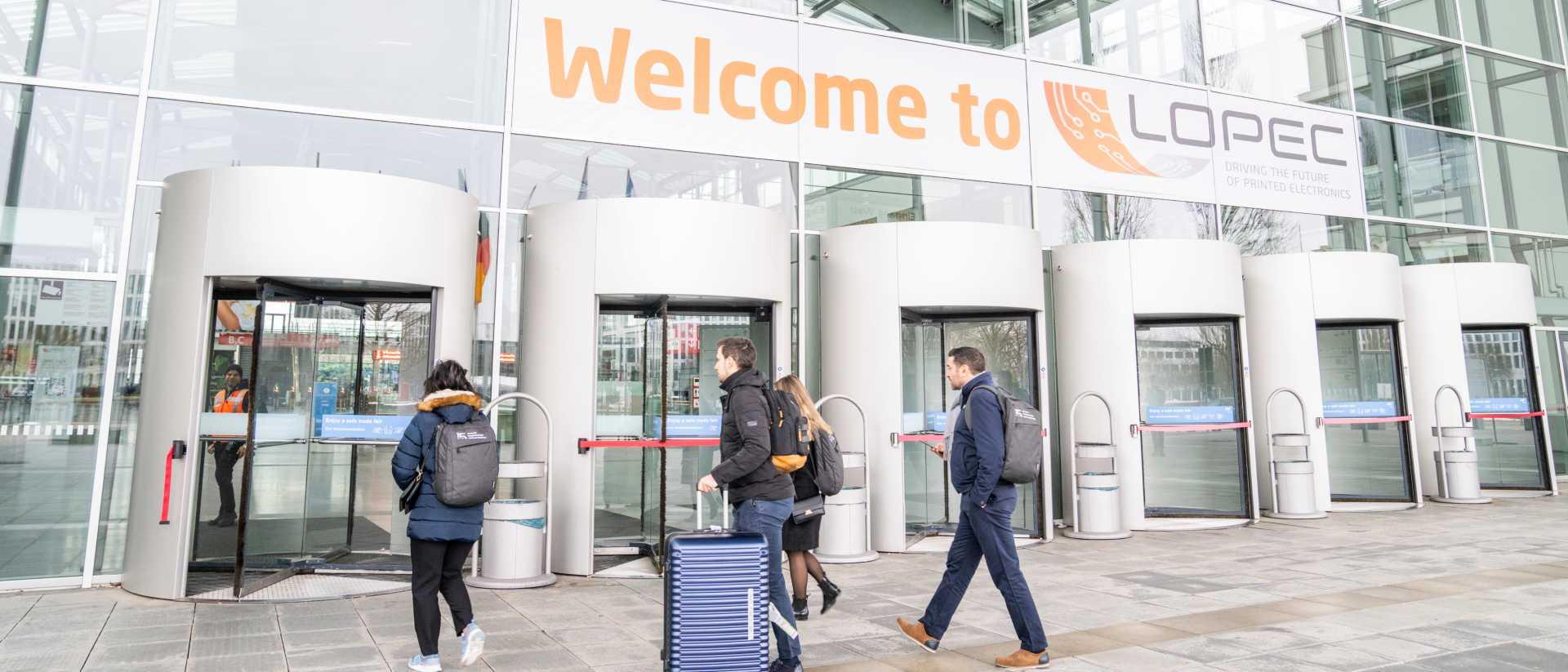ICEX España Exportación e Inversiones will coordinate the presence of six Spanish companies with the Functional Print Cluster during LOPEC 2024, in hall B0.405, on 6 and 7 March, to show their most innovative products to a professional audience.
This is the first time that ICEX provides the opportunity to exhibit the innovative capacity and high quality of the Spanish industry in a dedicated country pavilion. According to ICEX, “We are pleased to invite visitors and other exhibitors to Meet the Spanish companies and R&D centres at LOPEC 2024 and celebrate the 10th anniversary of the Cluster on 6 March at 13:00h, where they will be able to enjoy catering in a relaxed environment.”
Spanish exhibitors on-site
Aimplas: technology centre with more than 30 years of experience in the plastics industry.
Embega: multi-sector electronic printing. Automotive, white goods and health.
Eurecat: functional printing and integrated devices. Printed and hybrid electronics.
Materialight: real-time digitisation of industrial processes based on the interaction of light and matter.
Tecnalia: centre for applied research and technological development
Valver: complete screen printing and industrial decoration solutions for the automotive and industrial sectors.
Spain is considered to be Europe’s second-largest market for flexible and printed electronics. Growth in the EU market is mainly attributed to the penetration of intelligent consumer electronics, particularly highlighted by recent expansion trends in the medical applications sector. Germany is the leading market for flexible electronics, followed by Spain, with France in third place. Other significant markets include Finland and Sweden.
Functional print cluster at a glance
In 2014, the Functional Print Cluster was recognised as a cluster by the Government of Navarre. In 2024, the Cluster is already an Innovative Business Group recognised by the Ministry of Industry and a Technology Platform recognised by the Ministry of Science and Universities. Today, the company is actively involved in R&D&I projects, collaborating with more than 36 companies and 87 partners.
Functional Print Cluster has established priority areas in its business lines, highlighting mobility, Internet of Things (IoT), health, packaging, and Smart habitat & building. The fundamental mission of the Cluster is to act as an effective medium for the distribution of advanced printing technologies. From this perspective, it seeks to create new business opportunities by introducing innovative applications and developments in industry that take advantage of these technologies. The Cluster is also active in the field of training and this year will start the implementation of the INFINITE project and the Erasmus COVE project, which aims to create a European Network of Vocational Training Centres at regional and national level in cooperation with clusters and Vocational Training Centres in Germany, Latvia, Spain, and Finland.
Growth and diverse applications of printed electronics
Functional, flexible and organic electronic printing is growing rapidly. In 2020, it generated a turnover of $37 billion globally and is expected to reach $68 billion by 2030, doubling its volume in a decade. The fastest-growing segments are lighting solutions (29%), batteries (24%) and sensors (13%). Printed electronics, which grew from 5.8 billion in 2018 to 11.5 billion in 2023, shows a significant increase. The fastest-growing sectors are aerospace and defence (21%), retail and packaging (19%) and medical (15%).
Significant development is foreseen in other sectors, such as smart packaging, aimed at facilitating product traceability; the automotive sector, linked to the advancement of flexible electronics for electronic systems; and OLEDs, with printed biosensors and conductive inks. The market size is estimated to grow at a compound annual growth rate of 4.1% in value between 2020 and 2025.


